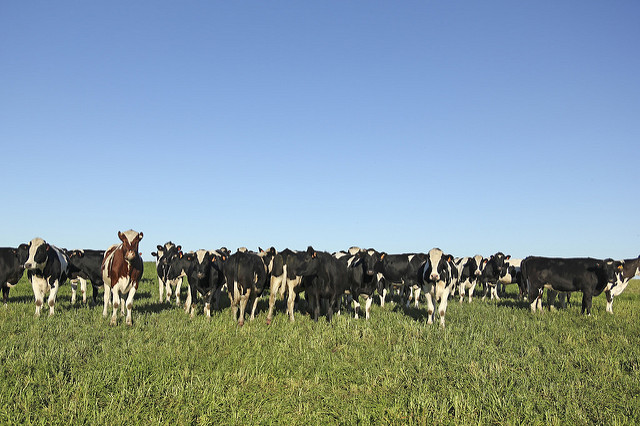



Debunking Some Myths about Hormone Use in Beef
Beef is a great source of things like protein, zinc and iron but a really lousy source of hormones. But that’s not always what people believe, writes Angela Lovell.The general public is concerned about the health risk associated with hormones in beef, but there is none, said Dr Reynold Bergen, Science Director for the Canadian Beef Cattle Research Council (BCRC) in a recent webinar presentation. Hormones are used in some countries as growth promoters, but are banned in others, such as the EU.
“The reason we don’t need to be nervous about them is because the amount of hormones that humans produce every day dwarfs the amount of residual hormone you would ever get from beef,” said Dr Bergen.
“A pre-pubertal boy would have to eat eight entire cows worth of beef every day to get as much hormone as he is already producing daily.”

Beef hormone implants contain very small amounts of hormones, which release slowly over time.
An implant which contains 200 mg of hormone products will keep a feedlot steer growing and converting feed efficiently for 120 days. Implants are placed in the ear, which is discarded at slaughter so there is no chance of any residual hormone getting into the food chain.
Rigorous Testing to Make Sure Doses are Safe
Hormones for cattle have been around for more than 60 years and are basically one of three different types; Estradiol (or oestrogen), testosterone, and progesterone, which are natural hormones. Synthetic versions are also available which mimic these natural hormones.
Dr Bergen said hormone implants have to undergo rigorous testing to make sure they are safe for both the animal and humans, and safe, daily intake levels are determined for each one based on response trials in laboratory animals.
“Hormones are tested at varying doses to see at what dose something starts to go wrong,” said Dr Bergen.
“The next lowest dose where nothing happens is called the NOAEL (no observed adverse effect level). Uncertainty factors are taken into account to allow for differences in species and the NOAEL is divided by these uncertainty factors to give the acceptable daily intake for humans.”
As well, over 90 per cent of dietary hormones are broken down by the digestive tract and liver and have no effect on the body.
Don’t Believe Everything you Read
It’s not hard to find headlines on the Internet linking hormones to all kinds of human health risks.
One suggested that research had linked the use of hormones in beef to premature onset of puberty in young girls. The story referred to a research paper from the University of Brighton published in a journal called Public Health Nutrition. Nowhere in the paper was there any mention of growth promoting hormones, or even of beef.
“The paper did say that it made sense from an evolutionary standpoint that a diet that includes meat and animal protein would promote sexual maturity,” said Dr Bergen, who read the research paper.
“The reason for that is that meat is a good source of bio-available zinc and iron. If you have a meat rich diet you have probably got a pretty good physiological level of zinc and iron, which tells the body that you are ready to reproduce sooner than if you had a diet that was not as rich in these compounds.”
Another 2015 study linked dietary exposure of hormones in rats to increased breast cancer risk. However, what the media did not report was that the rats were fed between 100 and 80,000 times the acceptable daily intake, said Dr Bergen.
Environmental and Consumer Benefits
Hormones provide advantages to producers by helping animals grow faster and more efficiently and produce a better carcass, but there are environmental and consumer benefits too.
“If we were to throw out all the technology that we use today, to produce the same amount of beef we would need 12 per cent more cattle, 10 per cent more land to raise them on, 11 per cent more feed, 4 per cent more water, 7 per cent more fuel, and would produce 10 per cent more manure and green house gases. As well consumers would have to pay 8 per cent higher retail beef prices," Dr Bergen said.
Recent concerns about growth hormones are that they could act as endocrine disruptors that have the potential to interfere with natural hormone systems in humans and other species.
Dr Bergen emphasises the need for continued, valid research done in real-world conditions to provide an accurate perspective on whether this is a valid concern or not.
Currently BCRC is funding a project in which Agriculture & Agri-Food Canada and Environment Canada researchers are collecting and analysing manure, soil and water samples from feedlots for the presence of antimicrobial resistance genes and hormone residues.
“Modern genomics and other analytical technologies will allow science to answer questions like this that are directly linked to consumer confidence,” said Dr Bergen.

Angela Lovell
Freelance journalist
Angela Lovell is an established independent writer and editor based in rural Manitoba, Canada. She has written extensively for the agricultural, business, and health services industries for more than 25 years. Check out her website at http://alovell.ca/



